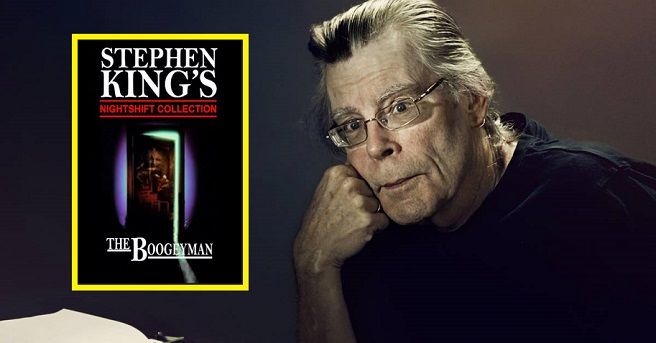The Boogeyman by Stephen King (REVIEW)
A Critic's Meta-Review: 4/5
They don’t call him the King for nothing. Well, I guess they sort of do, or at least they did before he began his writing career. I could be wrong, though; perhaps he was well-deserving of the title even in the days of hide and seek, paper bag lunches, and amphibian dissections (a practice which, I hope, has been eradicated at this point; when I was in school, we had to do it with a rat which was less jarring to me- an aspiring herpetologist- but, nevertheless, just as bizarre to have to do and, in retrospect, deeply unsettling.
As is to be expected by this point, I digress far beyond the pale (pail?).
Anyhoo.
Right off the bat, I knew I was going to love reading this story. Stephen’s storytelling has a way of sucking you in fairly early on, leaving you with no choice but to go along for the ride. And this was certainly quite a ride, let me tell you. One of those rides where, as soon as you get off, you peer back in contemplative reverence and think to yourself “why, gee willikers, buster, I’d sure like to get back on that thing once more if it would be at all possible to do so.”
But the thing is, you can’t get back on. I mean, sure - you theoretically can go back and read the story again, but it is definitely not going to have the same effect on you that it did the first time around. This is also a defining characteristic of Stephen’s stories (and of any thrilling tale worth its salt, come to think of it) - the inability to revisit upon reading the last sentence.
This is not to say that it is one of those cheesy “gotcha” endings, because it is not. In fact, I would be willing to bet that anyone who reads this story and pays even a little bit of attention to it will be able to predict the ending pretty early on. That, however, is not the point of reading a story like this. Well, it is if you are a mere completist. Then, yeah, I guess go ahead and breeze through the whole thing to get to that big reveal.
But it ain’t a big reveal is the thing I’m trying to get at here, man. Indeed, this is precisely the point I am making - to a T (tee? tea?): you are not reading this thing for the ending, but for the way in which the ending is reached. Just like you don’t hop on a mountain bike somewhere near your home in the capital of the United States and set your sights on the Pacific Coast because you really want to be in Southern California, stat. You ain’t getting there stat, partner. But you know that, brother man. Shoot, if you wanted to get there stat, you’d be flying Southwest (or Spirit, if you’re low on dinero [which is completely understandable in this economy]).
What exactly I am getting at here may be the object of your concentration at this current moment - have no fear, for it shall be answered shortly. In fact, you know what, I’ll just go ahead and answer it now: the trip is not about the destination. The trip is about...well, it’s about the trip. That’s the point of tripping - to trip, not to go any place in particular. After all, most of us ain’t really got no particular place to go in the first place. Sure, we might be under the impression that we do, but do we really? In this life, no matter which road you take, you will surely end up at the same place we are all headed for.
Hell.
Kidding!
Totally kidding.
Promise.
...you don’t believe me, do you?
It’s alright. You don’t have to believe me.
You do have to bear with me, though, as I still have to complete this review. Don’t worry; I won’t spoil the story for you. I will only proceed with a few more things that I felt may be worth mentioning enough to jot them down in my notes while I was reading the story (abruptly cutting the trip off, temporarily, so that I can remove my grooving cap for a moment and replace it with my thinking/writing cap, which looks a lot like my grooving cap except it’s orange and the grooving cap is purple [which is how I am able to tell them apart]).
The first is that I loved the progressive rise in (seemingly) unnecessary vitriol exhibited by the main character towards the shrink (although he was certainly being a bit of a cheeky prick with his snide little remarks and...well, I guess I’ll just leave it at that for now).
My personal favourite insult used was “lousy smug-head peeper”.
Speaking of the artful use of words, Stephen’s descriptive language was on point in this story (one that stood out to me enough to make note of was “his eyes seemed to fill up his entire face”).
But, yeah, like I said: do yourself a favour and just read the damn story.
...I did say that, right?
Ah, well.
If I didn’t, I just did now.

